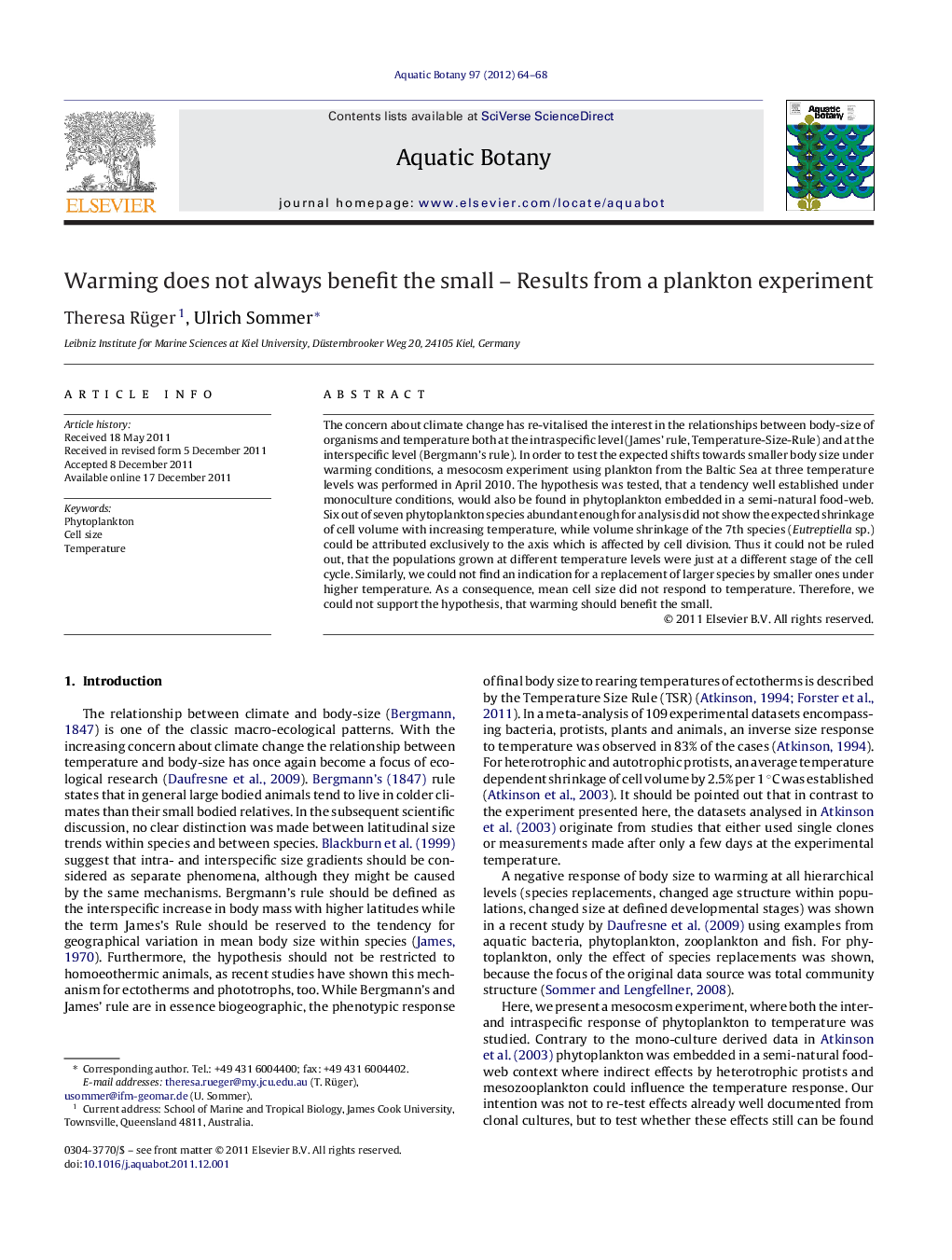| Article ID | Journal | Published Year | Pages | File Type |
|---|---|---|---|---|
| 4528064 | Aquatic Botany | 2012 | 5 Pages |
The concern about climate change has re-vitalised the interest in the relationships between body-size of organisms and temperature both at the intraspecific level (James’ rule, Temperature-Size-Rule) and at the interspecific level (Bergmann's rule). In order to test the expected shifts towards smaller body size under warming conditions, a mesocosm experiment using plankton from the Baltic Sea at three temperature levels was performed in April 2010. The hypothesis was tested, that a tendency well established under monoculture conditions, would also be found in phytoplankton embedded in a semi-natural food-web. Six out of seven phytoplankton species abundant enough for analysis did not show the expected shrinkage of cell volume with increasing temperature, while volume shrinkage of the 7th species (Eutreptiella sp.) could be attributed exclusively to the axis which is affected by cell division. Thus it could not be ruled out, that the populations grown at different temperature levels were just at a different stage of the cell cycle. Similarly, we could not find an indication for a replacement of larger species by smaller ones under higher temperature. As a consequence, mean cell size did not respond to temperature. Therefore, we could not support the hypothesis, that warming should benefit the small.
► We report a phytoplankton experiment on the size effect of temperature. ► Phytoplankton were embedded in a natural food web. ► There was no intraspecific decline of cell size with warming. ► There was no interspecific decline of cell size with warming. ► Popular rules about temperature-size relationships were not supported.
